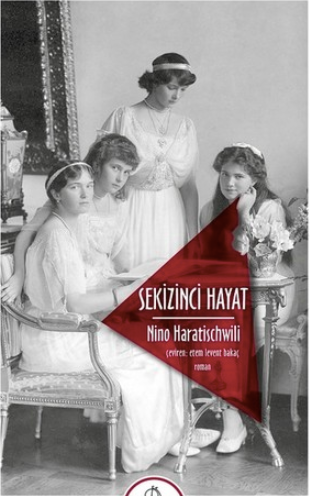After my visit to Second Story Books in Rockville last month, I realized that nearly all the unread P. G. Wodehouse in my home library were from his Blandings Castle series. I get twitchy about reading books in a series out of order (except for Zola), so I decided to track down the first novel, Something Fresh, first published in 1915 (titled Something New in the U.S.) It was available for digital audio download from my library, and since I was about to embark on a long car trip, it seemed like the perfect choice for a summer read. This book doesn't count for a single one of my reading challenges but it was a break from all the long books I'm reading this summer, and it is so delightful I had to write about it.
The story begins with a young man called Ashe Marson, a young writer of thrillers who is lodging in a cheap rental near Leicester Square in London (though I am sure it would shockingly expensive today). He has drawn the attention of a fellow lodger, Joan Valentine, because he is outside one morning doing calisthenics in the street. They get to talking and it is revealed that Joan is also a writer for the same cheap tabloid, and they both want to get out and do something more interesting (and profitable).
Meanwhile, we are introduced to the hapless Freddie Threepwood, the second son of Lord Emsworth of Blandings Castle. Freddie is in a tizzy because he has recently become engaged to a young heiress, Aline Peters, daughter of an American businessman. His father is pleased with the engagement, but Freddie is worried that he may be served with a breach-of-promise lawsuit from a pretty chorus girl. Freddie never actually met her but sent her flowers, letters, and poetry, which may have included a proposal. He fears that he may be subject to blackmail or even legal action.
Then we have Lord Emsworth, a gruff yet lovable but extremely forgetful man, who is liable to steal the silverware from a restaurant as most people would walk off with a cheap ballpoint pen. Whilst visiting his future in-law Mr. Peters, the absent-minded Lord has unwittingly absconded with a valuable Egyptian artifact, a precious Cheops scarab, from Mr. Peters' collection. Mr. Peters will stop at nothing to get it back, including a large reward, and places an ad in the paper for a young man seeking a well-paid adventure, which attracts the attention of Ashe.
All these characters converge on Blandings Castle for a fortnight's holiday in which everyone is trying to get their hands on the scarab, with the addition of various relatives, hangers-on, secretaries, and servants, and hilarity ensues (and even a little romance). If you're familiar with the Jeeves and Wooster stories, this is definitely in the same vein, especially the classic novel The Code of the Woosters (which also involves an artifact being stolen back). There is even a brief mention of an Emsworth relative named Algernon Wooster -- a precursor of Bertie, perhaps?
This was the perfect book for a car trip, and I found myself laughing out loud multiple times. It was brilliantly narrated by Frederick Davidson, who does all the voices and accents beautifully (except for a few slips in his attempts at an American southern twang). Davidson also narrated the audio version of Les Miserables that I downloaded earlier this year, and his reading was a big part of keeping my interest for the 56 parts of the novel. He was a prolific narrator of more than 700 audiobooks and I think I could listen to him read a telephone book, if they still exist.
I'm looking forward to more Blandings novels and maybe even the TV series, which I have yet to watch. Has anyone seen it? And which Wodehouse novels do you recommend? I've read several of the Jeeves and Wooster novels and some of the stand-alone novels. Next up in the Blandings series is Leave it to Psmith, which is #4 in that series, so I don't know if I should go back and start with Psmith #1 and jump back into Blandings. Does it really matter?




